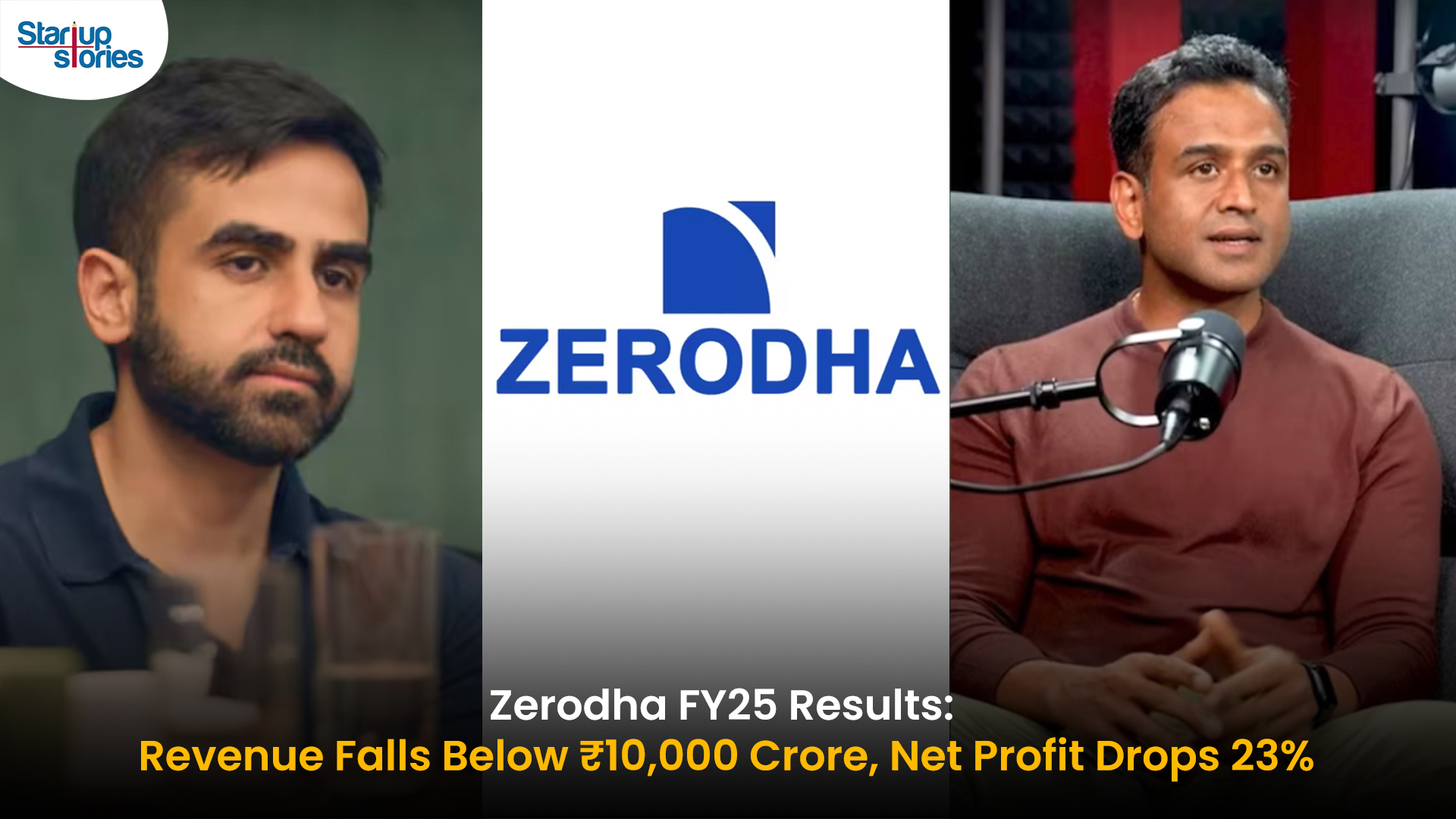Latest News
Zone Startups India Selects 15 Startups For EmpoWer Accelerator Program

Zone Startups India has selected 15 women led startups for the second edition of its EmpoWer Accelerator Program. The current batch of 15 entrepreneurs were selected out of 376 applicants from across India.
EmpoWer is backed by the Department of Science and Technology, Tata Trusts’ Social Alpha, Microsoft, Amazon, ICICI Bank, PayU, CapitalFirst and FlexiLoans. The selected startups represent various technology themes such as Internet of Things, artificial intelligence and deep learning, across industries like healthcare, smart cities and enterprise solutions. A panel comprising of 12 mentors and noted industry experts selected the startups after careful examination.
The startups that have been shortlisted will join the six week community programme. All the entrepreneurs will be provided with industry networking opportunities, valuable mentoring sessions, workshops, case studies, peer to peer interactions, boot camp and investor networking. The winner of this Cohort will also get the opportunity to attend a week long business development and personal mentorship programme in Quebec, Canada.
Launched in 2016, the accelerator programme has been designed to identify the need based gaps witnessed by women entrepreneurs. Through extensive research, Zone Startups is gunning to fill the gaps such as a lack of peer group of like minded women, limited financial independence, a risk averse mindset, lack of training in technology and finance among others. In the first edition, $ 23.6 million was collectively raised in funds by the 15 startups which were selected out of 191 applications.
Speaking about the 2nd Cohort, Director of Zone Startups India, Ajay Ramasubramaniam said, “ We believe we have unearthed some solid winners in the final cohort of 15, who will go on to do wonders for themselves and the ecosystem of women entrepreneurs.” The selected startups will be supported by Zone Startups India for up to a year after the programme.
Here Is the List Of The 15 Selected Startups And Their Founders –
Aardra Kannan Ambili – Riot Solutions Inc.
Founded in 2015, Riot Solutions is an IoT-based startup which develops sleep monitoring solutions for babies to track their wellness.
Meenakshi Vashist – Technology Uncorked
Technology Uncorked, led by Meenakshi Vashist, offers a light IoT framework for devices and appliances for energy efficient, Smart and connected Living Spaces.
Komal Goyali – WOWLET
WOWLET runs a mobile application that offers toilet maintenance and cleaning services for household, office complexes, and restaurants. Founded in 2017, the startup gives the user real time information on the cleanliness of toilets.
Neha Bagoria – Tapu Sustainable Solutions
Tapu Sustainable Solutions is into sustainable green solutions and provides waterless urinal solutions such as EcoTrapin Xtra and EcoTrapin Plus to help alleviate issues like climate change.
Vishakha Singh- ICONICbot
India’s first multilingual, AI driven chatbot, ICONICbot, helps to connect influencers and their fans on relevant messaging platforms. Available in English and Tamil, the company claims the bot has processed 2.6 million messages.
Shruthi Gilla – Revol Inc.
Revol is a startup engaged in the creation of smart wallets, such as Cashew, equipped with fingerprint authentication and Bluetooth connectivity. The company, registered in Delaware, USA, has a target to sell 10,000 units globally and generate $1,000,000 in revenue.
Niyati Agarwal – Morph.ai
Morph.ai is an enterprise ChatBot suite founded in 2016. The company introduced the concept of ‘chatbot as a landing page’ to boost lead generation for businesses and engage in personalized marketing and sales.
Chandni Rajendran – Tactopus
The Tactopus team, lead by design innovator Chandni Rajendran, is developing an interactive edtech device such as interactive books for blind children. Children with visual disabilities can listen to audio labels and explanations while feeling and reading tactile shapes with their fingers.
Pria Randolph – Bitgram Technologies
Bitgram is a trust based consent oriented software product which uses blockchain and machine learning for instant, real time exchange of verified information.
Veena Moktali – Periwinkle Technologies
Periwinkle Technologies Pvt., Ltd., is a med tech startup that provides various products for healthcare to enable faster and better diagnostics. The company also developed an affordable device in association with Tata Memorial Center for the diagnosis of cervical cancer.
Vidya Vellala – Faasthelp
Faasthelp is a customer support and engagement platform which helps businesses retain customers, convert new ones and enhance customer satisfaction.
Sivareena Sarika – PregBuddy Technologies
Founded in 2016, PregBuddy is a mobile application that is designed as a one stop platform for smart communication between doctors and patients, especially for pregnant women in India.
Mansi Khanna -The Friday Code
The Friday Code builds products which aid the growth of traditional and new age brands, develop platforms and transform organizations. Founded in 2016, this startup helps brands and agencies increase their returns from investments through efficient tracking and optimization of advertisements.
Geetanjali Agarwal – Bizlem
Bizlem deals in chatbot technologies that tries to solve major business problems using artificial intelligence.
Dr. Tanushree Devi Laishram – CyGen
CyGen is an independent organization which provides unprecedented access to personalized healthcare services. Launched in 2016, this company helps individuals increase their knowledge and understand those opportunities which can minimize healthcare challenges and improve the quality of life.
Latest News
Zerodha Reports 23% Profit Decline in FY25 as Revenues Miss Target

Zerodha experienced a challenging FY25, as its revenue fell 11.5% to ₹8,847 crore and net profit dropped 22.9% to ₹4,237 crore. This decline reflects tougher regulatory conditions, lower trading volumes, and increased operational costs in the brokerage market, all of which impacted core earning segments for the company.
Despite these headwinds, Zerodha improved its operating margin to 63.78% and built up significant cash reserves, reporting ₹22,679 crore in bank balances. Salary expenses and director remuneration increased, but disciplined cost controls helped the company maintain profitability and a debt-free balance sheet. The drop in active clients and increased compliance costs further contributed to the profit contraction.
Looking ahead, Zerodha’s resilience is supported by its robust cash position and operational efficiency. Maintaining steady margins, diversifying product offerings, and investing in technology positions the company to withstand future regulatory fluctuations and changing market sentiment reinforcing its status as one of India’s leading brokerage firms.
Latest News
Zoho Pay Debuts as India’s New UPI Challenger, Taking on PhonePe, Paytm, and Google Pay

Zoho Corporation has expanded its fintech portfolio with the launch of Zoho Pay, a UPI-based payments app built to challenge India’s top digital payment giants such as PhonePe, Paytm, and Google Pay. The new app supports peer-to-peer transfers, bill payments, QR-based transactions, and merchant settlements in a streamlined interface. Available as both a standalone app and an integrated feature inside Zoho’s privacy-driven messenger Arattai, Zoho Pay enables users to handle chats and payments in one platform, emphasizing data privacy and Made-in-India innovation.
Through seamless integration with Arattai, Zoho Pay allows users to send or request payments, split expenses, and conduct UPI-based transactions directly in their chat windows. Users can link bank accounts, scan dynamic QR codes, and receive audio confirmations of payments, ensuring speed and security. This design mirrors the simplicity of India’s leading UPI apps but is powered by Zoho’s non-advertising, privacy-first model. The integration aligns with Zoho’s mission to build a self-reliant digital ecosystem, where messaging and money management coexist securely.
In the competitive digital payments market, Zoho Pay differentiates itself through its tight business software integration with apps like Zoho Books, Zoho Payroll, and Zoho Commerce, offering small businesses unified access to payments, billing, and accounting. The company is also expanding its reach with POS devices for merchants featuring UPI QR, card payments, and instant reconciliation tools. With founder Sridhar Vembu’s vision of a ‘Chat + Pay’ ecosystem, Zoho Pay reflects a bold step toward redefining India’s fintech scene with a secure, ad-free, and locally developed alternative to global payment platforms.
Latest News
Meta Expands AI-Powered Reels Translation to Hindi and Portuguese, Enhancing Global Creator Reach

Meta has expanded its AI-powered translation feature for Reels to include Hindi and Portuguese, joining English and Spanish in empowering creators to reach a broader global audience on Instagram and Facebook. Originally launched in August 2025 with support for English and Spanish, this update now allows creators to seamlessly translate and dub their short videos, breaking language barriers across some of the largest Reels markets worldwide. The AI technology mimics the creator’s voice tone and even offers lip-syncing to ensure the translated videos feel natural and engaging for viewers.
This enhancement is especially significant for India, the largest market for Facebook and Instagram, where over 600 million people speak Hindi. Content creators who are not fluent in Hindi can now easily access this vast audience, increasing their reach and engagement across diverse linguistic groups. To maintain transparency, all translated Reels are clearly labeled with “Translated with Meta AI,” and viewers can choose to switch translations on or off based on their preference.
In addition to voice dubbing, Meta is developing features to translate captions and text stickers on Reels, making content more accessible even without sound. These AI translation tools are available free for eligible public Instagram accounts and Facebook creator profiles with over 1,000 followers. This innovation reinforces Meta’s commitment to fostering cross-cultural content sharing and enhancing creators’ ability to connect with audiences around the world through short-form videos.














谷歌站群
November 7, 2025 at 2:14 am
专业构建与管理谷歌站群网络,助力品牌实现全域流量的强势增长。谷歌站群
J88
November 8, 2025 at 2:59 am
Đến với J88, bạn sẽ được trải nghiệm dịch vụ cá cược chuyên nghiệp cùng hàng ngàn sự kiện khuyến mãi độc quyền.
GO88
November 9, 2025 at 8:27 am
Tham gia cộng đồng game thủ tại Go88 để trải nghiệm các trò chơi bài, poker phổ biến nhất hiện nay.
MM88
November 11, 2025 at 3:14 pm
Khám phá thế giới giải trí trực tuyến đỉnh cao tại MM88, nơi mang đến những trải nghiệm cá cược thể thao và casino sống động.
谷歌蜘蛛池
November 12, 2025 at 1:54 pm
利用强大的谷歌蜘蛛池技术,大幅提升网站收录效率与页面抓取频率。谷歌蜘蛛池
MM88
November 15, 2025 at 12:41 pm
Với giao diện mượt mà và ưu đãi hấp dẫn, MM88 là lựa chọn lý tưởng cho các tín đồ giải trí trực tuyến.
Kuwin
November 22, 2025 at 3:48 am
kuwin sở hữu kho game đa dạng từ slot đến trò chơi bài đổi thưởng, mang đến cho bạn những giây phút giải trí tuyệt vời.